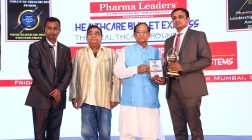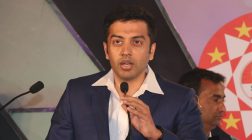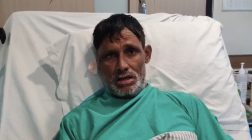Indian Doctors are the Best?
Rewarding the Skill and Talent of Indian Doctors
‘Indian doctors are the best.’ Let’s address this first. This is a statement I have heard echoed by so many medical, paramedical or lay people during my stay abroad and even by some foreign patients I came across in India. I have heard compliments about my fellow men, being a doctor myself, ranging from good bedside manner and excellent English correspondence to the knowledge and implementation of the latest and the best medical therapy there is. I have heard our doctors being recognised for their work not only in a group of 3-4 people besides a patient’s bed, but also in international conferences in front of a large audience. Not only are our doctors well known, but the institutes all across India are also world renowned for producing some fantastic medics.
All these accolades, all this honor, all this recognition, but then where is the documentation of it? How many times have we read about or seen the news of an Indian doctor leading a team of professionals and pioneering a cure for asthma or stem cell research, or when was the last time we heard about an Indian doctor being honored with the Nobel Prize for Medicine. The prizes are there, but they are far and few. We get enough recognition verbally – over dinner table conversations or even at conferences, meetings, seminars, banquets and in the hospital itself. So where is it that we lack?
I have been troubled by this question ever since I got a grasp of medical studies. As a medical student, I used to adore and idolise the fantastic teachers who taught me the skills of medicine, but I also used to wonder, “Why isn’t it that I read their names in journal articles or in medical news?” I must say my experiences in India and in the United Kingdom, where I spent four years, have made me solve this dilemma, at least to a certain extent. Let me share my experiences with you, by categorising this problem as follows:
Research— Let me explain the lacunae here through this example. I was amazed to know that the city of Mumbai has more MRI machines than there are in the whole of the United Kingdom. Then why is it that breakthroughs in radiological research are seen exclusively in the United Kingdom, and not in Mumbai. The answer is simple, in the UK amongst all the MRI machines that they have, a certain number of them have been kept aside exclusively for research purposes and not for commercial use. How many MRI machines do we know of, not only in the city of Mumbai, but all over India that have been kept aside for pure medical research and not for commercial use? The answer is none. I guess this also tells us that we generally have the facilities for conducting research, but no proper designated instruments or policy to guide us. This can be overcome by dedicating some of the pioneering medical equipment and facilities for the sole purpose of research work.
Infrastructure — Now this is a problem I guess we all are quite painfully aware of. Due to the lack of grants and financial support, we do not get the entire infrastructure necessary to go ahead with research, studies, tests, etc required for our doctors to stand tall and be pioneers in the international medical scene. It’s time the government and the powers there are, to wake up to this reality and to address it without the hassle of red tape. A certain percentage of the grants funded to government and non government medical institutes must be reserved and given forth only for the purchase and distribution of medical equipment.
Lack of time—Ask any resident medical doctor or a consultant at a busy hospital whether they would like to take part in some studies or publishing of some medical data, and the unanimous answer would be, “We would love to, but we lack the time to do it”. So the zeal, enthusiasm, knowledge and commitment is all there for doing some ‘quality’ medical work and coming out with some innovations and breakthroughs in medicine, but our hard working, overworked and often underpaid doctors genuinely lack the time to do so. Now all this overwork is understandable taking into consideration the sizable population of our country, but then how have some of the other countries overcome this problem. It’s not that they have fewer ill people. I have observed that they have overcome this ‘lack of time’ phenomenon by training and recruiting more doctors and paramedical staff. They assign them shift duties, wherein doctors work for a fixed number of hours each day, at a stipulated time a colleague takes over the work and the doctor gets free time for some recreation and of course, ‘quality’ medical work.
Commercialism—It has unfortunately become a sad fact that the medical practice in India has, to a certain extent, become a money making business. In the race for survival some of our medical brethren have given up morality and have forgotten the Hippocratic Oath giving Indian medical practice a bad name. The reasons for this can be manifold right from poverty to pure greed to earn money, but I guess the way the ‘temptation’ can be avoided is by bearing in our minds that we are men and women of medicine chosen to carry forth this noble profession and to hang on the wall, alongside our medical digress/diplomas, the Hippocratic oath, which is the gold standard for any medical professional to adhere to and to follow.
Hardships to become an Indian doctor—I guess poverty, too many mouths to feed, family responsibilities amongst other problems, prevent so many of our talented but deprived children from even getting into a medical school. Even if somehow they do secure an admission into one, they and their parents are faced with the acute problem of finances required to acquire the expensive medical books, journals, equipment etc. It is because of this very reason that a wide eyed dream of an underprivileged child in India remains just that, a dream. The government should overcome this hurdle by providing financial sponsorship to meritorious children, by providing them, with the help of voluntary organizations, books and equipments needed to become a doctor. Larger institutes can recognise this young talent in the medical school itself and sponsor their further post graduate studies.
Recognition—this issue came to mind after pondering over the previous ones. Say, in some way we do give our doctors all they need – infrastructure, time, and grants for conducting medical research, studies and breakthroughs. What would still be lacking? The answer I believe is ‘recognition’. I remember us coming across unique medical cases during our resident doctor days. This would be a patient with some different symptoms and signs, which are rare and noteworthy, and we, as young enthusiastic doctors, would be very interested in writing up this case and publishing it in a medical journal for the world to acknowledge and learn from. However, we were often discouraged and shunned and were told that it would take quite some time to do that and in the same amount of time we could treat other waiting patients or take part in some departmental activities. Reflect upon the fact that there are many talented people we have in our country, right from sports to music, but really how many of their names do we end up seeing on our television screens or in the newspapers? I guess the way forward from this issue is to make the government provide incentives in any form, be it simple encouragement and recognition or cash prices for doctors to come forth and devote their time to medical research and breakthroughs.
‘Evidence based Medicine’ approach— Finally, I have observed that most of the western countries adopt an evidence based medicine approach for treating patients. Here the medical textbooks form the backbone of the subject, but the finer nuances of therapy and newer advances are adopted via data available from the evidence and knowledge gained from studies. Adopting such an approach by our medics will surely further improvise our current standard of care.
I have tried herewith to outline some of the problems that lie in the path of us Indian doctors from being truly the best in the world for our work. I sincerely believe that if we want to, we can be the best there is and make the world recognise us and give us a standing ovation.











